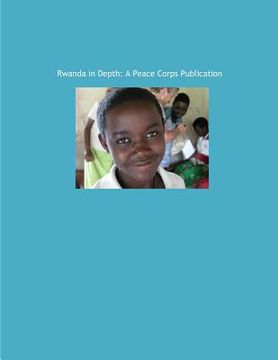Reseña del libro "Rwanda in Depth: A Peace Corps Publication (en Inglés)"
In pre-colonial Rwandan society, the Hutu, Tutsi, and Twa peoples spoke the same language, followed the same cultural practices, and occasionally intermarried. The Tutsi were traditionally cattle herders, while the Hutu were generally farmers. Because cattle were the dominant form of disposal capital, the Tutsi were better positioned to exert economic power and influence. What is important to know is that the classifications of Hutu and Tutsi were economically founded and it was possible to move from one group to the other. It was not until colonialism that Hutu and Tutsi became designated ethnic groups. The economic leverage of the Tutsi led to political dominance and a line of Tutsi bwami (kings) gradually consolidated power until a "unified" Rwandan state evolved in the latter half of the 19th century under Mwami Kigeli Rwabugiri (Kigeli IV). While the Hutu may have been excluded from the highest levels of power, they still exercised some influence at the middle and lower levels by being incorporated into the political system as part of the hierarchy of chiefs who administered the districts and hills. The "chief of the pastures" would usually be a Tutsi and the "chief of the land," in charge of agricultural matters, would usually be a Hutu.After the Berlin Conference of 1884, Rwanda was placed under the German "sphere of interest" and the first German explorers arrived in Rwanda in 1894. Germany entered into a series of treaties with the Tutsi kings that placed Rwanda in a "protectorate" status beginning in 1899. Using the existing political systems, Germany exercised indirect administrative control through the kings. Similar indirect administration was exercised over the kingdom of Burundi. Early European civil servants and missionaries adhered to the so-called "Hamitic thesis," which espoused that the African "Hamites" were a branch of the Caucasian race because they bore closer physical resemblance to Europeans than other sub-Saharan Africans (being taller and having finer features and typically lighter skin). The "Hamites" were thought to be more intelligent and, therefore, worthy of positions of leadership. In Rwanda, the Tutsi were judged to be "Hamites" and they received preferential treatment from the Germans. During World War I, Belgian troops evicted German forces from Rwanda and Burundi, and Belgian control of the region was formalized in a 1922 League of Nations mandate that joined the two kingdoms as Ruanda-Urundi. The Belgians continued to operate on the basis of the Hamitic hypothesis and, by the end of the 1920s, they had instituted a process to systematically give preferential status to the Tutsi, both in education and in politics. In the 1930s the Belgians began a process of "Tutsification" that replaced the Hutu chiefs and deputy chiefs at the district and hill level with Tutsi. In 1933, the Belgians introduced identity cards that classified each person as Tutsi, Hutu, or Twa. This distinction is reported to have been largely based on the number of cattle a person owned.

